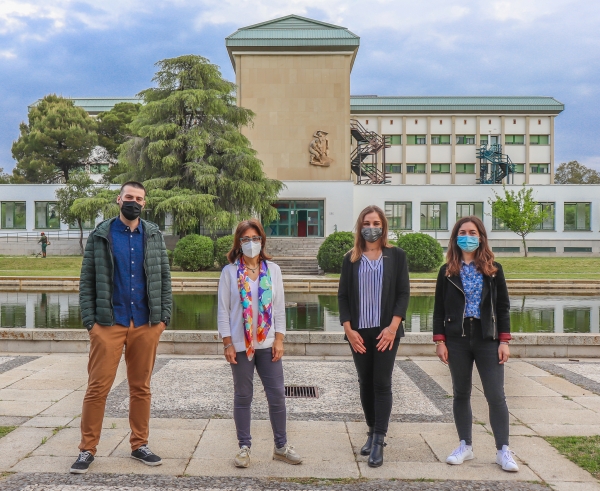Â
In the year 2030 it is estimated that around 80% of the European population will live in urban areas, so cities are essential to the transition towards a sustainable society; the promotion, prevention and mitigation of socio-economic inequalities; and access to health and well-being. IN-HABIT arose for the purpose of identifying and creating visionary and integrated solutions to promote health and well-being in an inclusive way in small and medium-sized cities in Europe.
The University of Córdoba is leading the IN-HABIT project, coordinated by Professor Mª del Mar Delgado, with three other European cities also participating: Riga (Latvia), Lucca (Italy) and Nitra (Slovakia). Each of the cities that make up IN-HABIT features a focus through which the impact of visionary and integrated solutions on inclusive health and well-being will be researched: in Córdoba, culture and heritage; in Riga, food; in Nitra, art and the environment; and in Lucca, the relationships between people and animals.
In each of them an intervention area has been selected in which different innovative solutions will be implemented and researched. In Córdoba, the Las Palmeras district was chosen, involving the local neighbourhood association (Asociación de Vecinos Unión y Esperanza de Las Palmeras), together with the capital city’s government.
The research team at the UCO emphasizes how the integration of different social, cultural, nature-inspired, digital and technological innovations can lead to changes towards healthier, more satisfying and sustainable lifestyles. Thus, all the solutions to be researched by the project will be co-designed, co-managed and co-implemented by and with the residents themselves. Hence, the project's IN-HUB (innovation laboratory) was recently launched.
Specifically, one of the activities that the project is carrying out in the Andalusian city is the "renaturation" of Las Palmeras' patios, co-creating and replicating the traditional patios of Córdoba together with the neighbourhood’s residents. The objective is to create an intangible "corridor" connecting the neighbourhoods of Las Palmeras and the Axarquía through the patios, researching their role in tackling global challenges like climate change and unexpected situations, such as pandemics. Mª del Mar Delgado, coordinator of the project at the UCO, underlined the need to rethink cities in the face of these new scenarios, to prevent the most vulnerable from being excluded from access to health and well-being.
More information is available at the following link: https://www.inhabit-h2020.eu/
The "IN-HABIT- Inclusive Health And well Being In small and medium size ciTies" (H2020-SC5-14-2019-869227) project is financed by the European Union through the H2020-SC5-14-2019 call. This report is part of the “CONSOLIDA-UCO” project, ECT2020-000810, funded by MCIN/AEI/10.13039/501100011033 and by the European Union's "Next Generation EU/PRTR" program.


